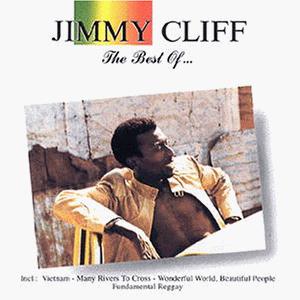
| Artist: | Jimmy Cliff |
| Title: | The Best of ... |
| Released: | 1993 |
| Label: | EMI Records |
| Time: | 66:42 |
| Producer(s): | |
| Appears with: | |
| Category: | Reggae |
| Rating: | *******... (7/10) |
| Media type: | CD |
| Purchase date: | 1999 |
| Price in €: | 9,99 |
| Web address: | www.jimmycliff.com |
..:: audio-music dot info ::.. |
| A l b u m D e t a i l s |
 |
|
||||||||||||||||||||||||||||
|
|
|||||||||||||||||||||||||||||
| S o n g s , T r a c k s |
| A r t i s t s , P e r s o n n e l |
| C o m m e n t s , N o t e s |
| L y r i c s |
| M P 3 S a m p l e s |